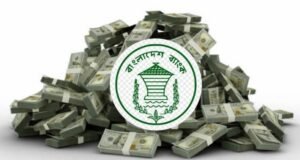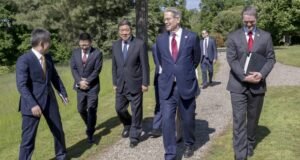
Bangladeshi officials have received indications from the International Monetary Fund (IMF) that the multilateral lender’s board has agreed in principle to approve the country’s loan request, reports UNB.
Several officials of the Ministry of Finance said that the IMF will approve the loan for Bangladesh on Monday (Jan 30).
An IMF team led by Rahul Anand visited Dhaka from October 26 to November 9, 2022, to thrash out the details of the program.
After that the IMF’s vice president, Antoinette Monsio Sayeh, visited Bangladesh from January 14-18 and praised the economic development and social progress she witnessed during her visit, saying it has left an impression on the whole world. Sayeh also congratulated Prime Minister Sheikh Hasina on that.
Former IMF economist Dr Ahsan H. Mansur told UNB that that is known of the visits and discussions held with the Ministry of Finance, Bangladesh Bank, National Board of Revenue, Ministry of Planning, Bangladesh Bureau of Statistics (BBS), and others indicates the global lender has reached an agreement to provide $4.5 billion loan to the country.
The first installment of the IMF loan is just awaiting formalities, he said.
“We are getting the loan just the way we wanted. A total of $4.5 billion will be leant to Bangladesh,” Finance Minister AHM Mustafa Kamal told the media earlier.
The amount will be disbursed in seven installments till December 2026. The first installment of $447.78 million will be cleared in February. The remaining amount will be in six equal instalments of $659.18 million each.
The interest rate of the loan will depend on the market rate at the time of maturity. The Finance Ministry has calculated that the rate would be around 2.2 percent, sources said.
The IMF earlier stated that its delegation led by Rahul Anand and the Bangladesh authorities had agreed on a program to support Bangladesh’s economic policies with a 42-month arrangement of about $3.2 billion under the Extended Credit Facility (ECF) and the Extended Fund Facility (EFF) as well as of about $1.3 billion under the Resilience and Sustainability Facility (RSF).
 Weekly Bangla Mirror | Bangla Mirror, Bangladeshi news in UK, bangla mirror news
Weekly Bangla Mirror | Bangla Mirror, Bangladeshi news in UK, bangla mirror news







